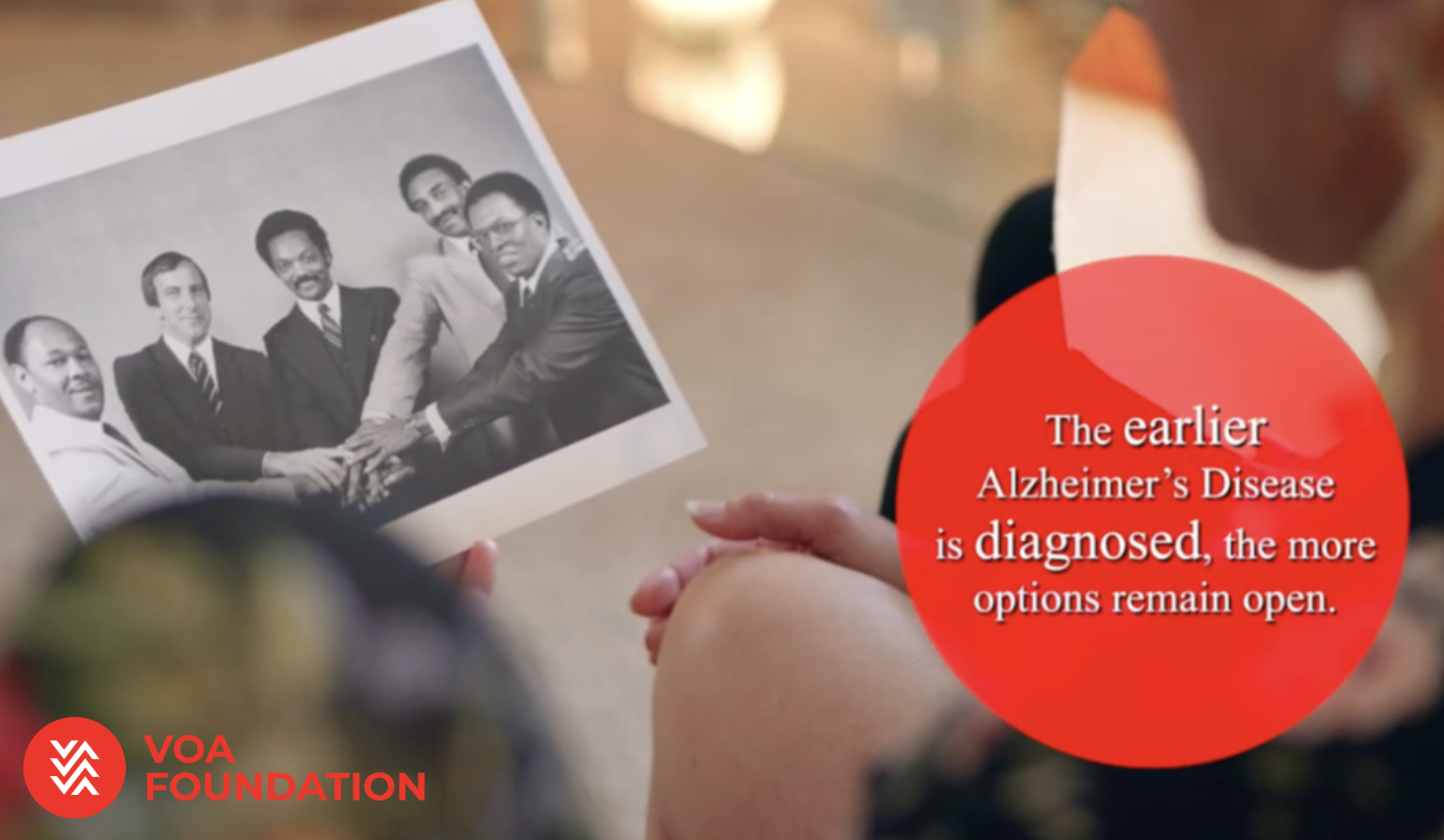VoA Foundation Newsletter
October Issue:
A Season for Renewal and Quality Care
Why Early Detection Matters: A Video from the VoA Foundation
Additional Alzheimer’s Resources
About the VoA Foundation
Get in Touch!
About the VoA Foundation
We are proud to introduce the VoA Foundation, an educational initiative born from Voices of Alzheimer’s. Our organization, led by individuals living with Alzheimer's, is on a mission to transform the landscape of Alzheimer's care and understanding.
Through the VoA Foundation, we aspire to eradicate stigma, champion equality, and craft educational resources that shed light on cutting-edge innovations in care and treatment. Our vision? A world in which individuals grappling with Alzheimer's and other cognitive illnesses can embrace a life filled with well-being and joy.
Additional Alzheimer’s Resources
At the VoA Foundation, we are committed to providing valuable resources and support to those affected by Alzheimer's and other cognitive illnesses. We have compiled the best resources from leading Alzheimer’s organizations to provide the most comprehensive expertise for those living with the disease and their loved ones. Our subject areas include:
Follow Us!
Questions? Want to get in touch? Email us at voa-foundation@voicesofad.com.
A Season for Renewal and Quality Care
As autumn ushers in a season of change, it’s a fitting time to reflect on transformation within our healthcare system. The turning of the leaves reminds us that renewal is both natural and necessary—and so too must our approach to Alzheimer’s care evolve with the times. Quality care should not depend on where you are treated—whether in a hospital, long-term care facility, memory clinic, or community health center. Every person living with Alzheimer’s deserves consistent, compassionate, and competent care wherever their journey takes them.
People living with Alzheimer’s deserve care from professionals trained to recognize and respond to cognitive symptoms with empathy and expertise. A survey of U.S. primary care physicians found that 22% had no residency training in dementia diagnosis and care. Of the 78% who did receive dementia-training, 65% reported the amount was “very little.” This gap leaves far too many patients and families struggling to find clinicians who understand the complexities of cognitive decline and can communicate with sensitivity.
Strengthening training standards and accountability across settings ensures that every patient is treated with the respect, patience, and understanding they deserve. It also helps create healthcare environments that are dementia-friendly—where staff feel confident, families feel supported, and patients feel safe. Investing in education and systemic improvement is not just about quality care—it’s about preserving dignity and humanity in every interaction.
The Bill of Rights for People Living with Alzheimer’s Disease:
The Bill of Rights for People Living with Alzheimer’s Disease, introduced by Voices of Alzheimer’s (VoA) and the VoA Foundation, outlines the fundamental rights that individuals with Alzheimer’s and related disorders are entitled to.
One of its ten rights is the right to receive quality care in all medical settings from professionals trained in interacting with and caring for people living with cognitive impairment. As we enter a new season, this right reminds us that quality care must adapt and grow just as the seasons do—ensuring every person with Alzheimer’s receives compassionate, competent care wherever they are.
Resources for Quality Care
We’ve compiled a list of resources dedicated to supporting individuals and caregivers in understanding and accessing resources for quality care.
Why Early Detection Matters:
A Video from the VoA Foundation
During Alzheimer’s and Brain Awareness Month, we’re highlighting the importance of annual cognitive screenings — a critical first step toward early diagnosis and better care.
Our new video, created in partnership with families, care partners, and clinicians, shares powerful stories about the impact of catching Alzheimer’s early. It also reminds viewers of their right to a free cognitive assessment through Medicare’s Annual Wellness Visit.
Early detection brings hope, access to treatment, and more time to plan.







